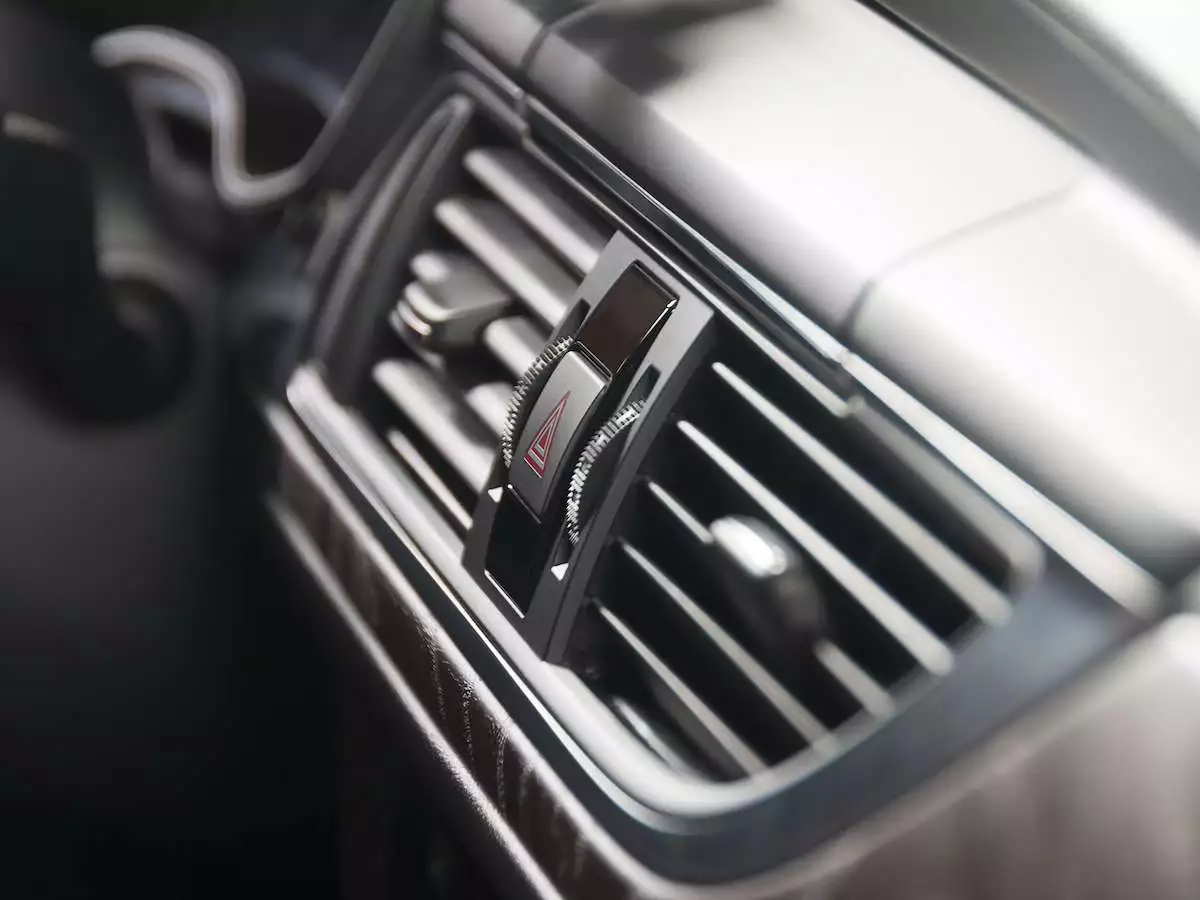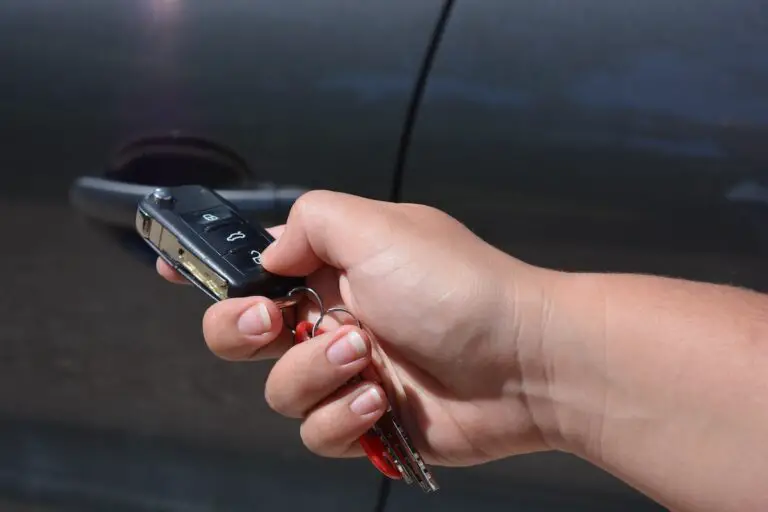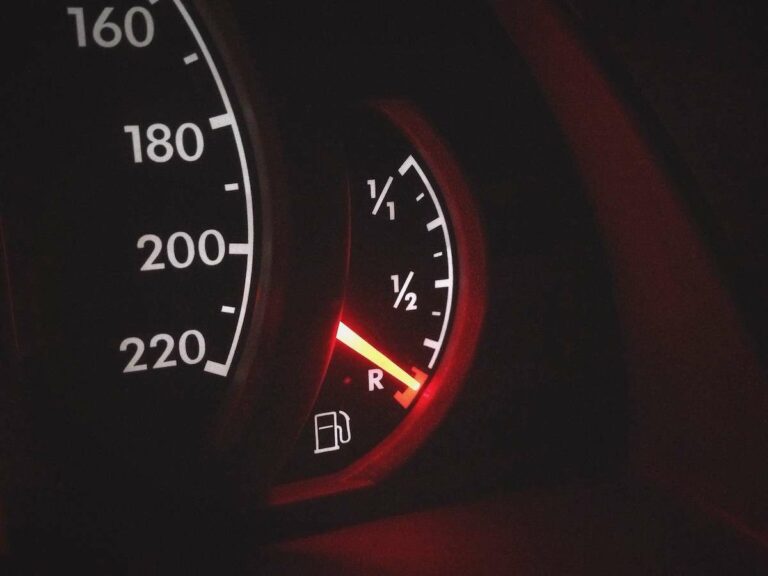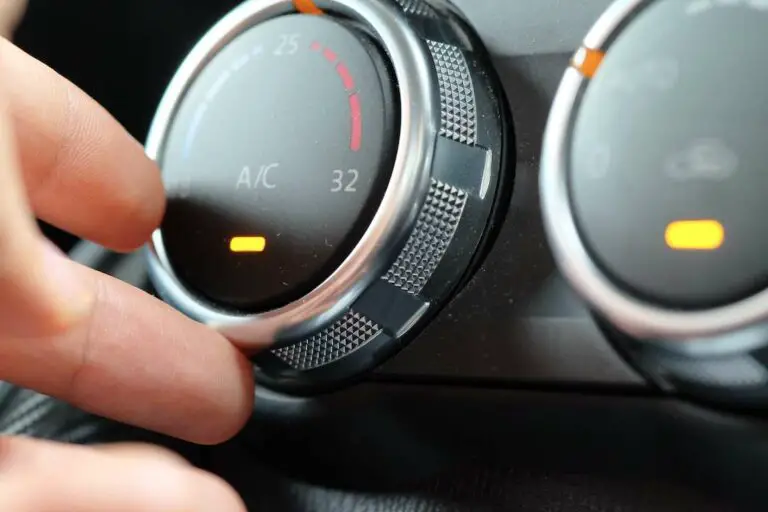Does AC Drain the Car Battery? [With Test Results!]
Many rumors about car batteries and how they are drained of their power can cause confusion and problems. One of the most ever-present rumors from the age of early climate control is that the AC drains the car battery any time it is used.
The car AC can drain the car battery in about 2 to 5 hours (depending on the battery capacity) if it is used when the car is shut down. When the car engine is not running, only the fans of the AC can be powered. When the engine is on, the AC doesn’t drain the battery as the alternator entirely powers it.
Many things have caused the AC to be looked at with scorn regarding how quickly car batteries are drained. We recommend understanding how the AC works and how it may be responsible for causing your fuel to be low but your battery to be fully functioning.
Pro Tip: If your car battery is dead, don’t throw it away! Check out this tutorial on how to bring your dead battery back to life and save a lot of money! This little known method is simple, quick and works for almost ANY battery out there!
How Much Power Does AC Take?
We’ve explained how the AC in your car works in further detail in the later sections of this article. For now, let us understand how much power the AC uses when it is used in the car.
There are two states in which we need to take a look, as each one will use different systems to either cool your car’s cabin or move the air about it with more intensity.
One of these ways will deplete your battery within a few hours, while the other will only have a small impact on your fuel consumption. We recommend that you know how using the AC in your car, whether the engine is running or not, will affect the overall power of your car.
When The Engine Is Running
The battery will have almost no impact when your car’s engine is running, allowing you to use the AC until you are freezing or sweating as much as you want. Instead, the AC and the fans will be powered by the turning of the engine and by the alternator.
This is why smaller cars consume more fuel when the AC constantly runs, as the engine needs to work slightly harder. However, over the long course of things, this has been measured to be such a small increase in fuel and power usage that it is not noticed, as stopping and going at red lights uses more fuel than the AC.
When The Engine Is Not Running
In cars with internal combustion engines, the AC will not work properly when the engine is not running; only the fans can be turned on to cool everyone down. Using just the fans can cause the battery to be completely drained within two hours; however, the fans will only blow with the key on the on position.
It should be noted that most people would not use the AC in this manner, only when the car is running. Further, full electric cars like Tesla’s have completely different systems that allow the AC to work at all times, which does drain the main battery, but would take a lot longer to be drained.
Can The AC Cause The Battery To Be Drained?

As the AC is not connected directly to the battery and depends on the alternator, it should not drain your car’s battery. When everything is working properly and you have no other electrical problems, AC should never cause any electrical drain on the battery or the alternator.
However, there are instances where the alternator can be damaged or the belt connecting everything has been loosened where the battery can be drained. When this happens, it is referred to as a parasitic drain on the battery, as it loses power gradually over a week or more instead of overnight.
If your car ever has trouble starting, you should take a moment to check if there is a parasitic power draw or if there is a much bigger problem. We suggest that you stay on the safe side rather than risk, as a dead battery can mean you are stranded, without a way to cool or heat yourself in the middle of nowhere.
How Does AC In A Car Work?
Your car’s AC or climate control combines systems to heat up or cool down your car. When used properly, you will usually not notice a difference in the behavior of your car, but you will be able to drive for hours in the sun without feeling the heat.
Your car AC has a compressor that uses gas under pressure to remove heat from the air being pushed through your vents. The needed air always comes from fans that push air through the vents, with climate control systems automatically switching between the vents as needed.
Remember that the engine and the alternator provide the main power for the AC in your car. This is usually why the AC does not work when the engine is not currently running, as the pulley system that drives the AC is not actively powered.
Why Does The AC Cause More Fuel To Be Used?
The compressor that cools down the hot air going into the vents of your car is directly coupled with your engine through a belt. When the AC is used, this compressor uses power from the engine to push the cooling gas through the AC system, exchanging heat for cold air.
Many older cars with smaller engines are heavily affected by using the AC system. In comparison, newer cars have much more efficient engines and AC systems that have made this almost unnoticeable We always recommend considering this when you are busy driving around with some of the smaller cars on the market..
One of the most well-known tests for fuel efficiency being affected by a car’s AC was done by the Mythbusters. They found that driving with the windows open on an SUV was less fuel-efficient than driving with the AC, as the windows’ wind resistance dramatically affected the vehicles.
What Should You Do When The AC Drains the Car Battery?

If you have found that the AC has started being a parasitic drain on your car battery, then you should take it to your nearest mechanic or service center. There can be a hundred different things in every car causing this, and it is only with someone who knows the most common causes that you can fix it.
While we would like to say replace the fan belt or replace the alternator, it is never as easy as that. Many people find that the parasitic drain is caused by old wires that are shorting instead of the AC system directly, something that may only be known to the mechanics that work on the car.
We always recommend considering this, as you may spend a fortune trying to replace parts on your own when all that is broken is wire somewhere underneath the engine. Many people have tales of woe from trying to find the problem, only to learn later it was something insignificant that the mechanics have encountered many times before.


![Does CarMax Lease Cars? [Complete Guide!]](https://vehicleuniversity.com/wp-content/uploads/2023/01/black-man-sitting-inside-of-new-car-and-shaking-ha-2022-01-19-00-11-50-utc-768x576.webp)

![Do Cars Have Trackers? [Everything You Should Know!]](https://vehicleuniversity.com/wp-content/uploads/2023/01/gps-system-in-a-smart-car-2022-12-15-23-13-58-utc-768x512.jpeg)

![Car Won’t Start But Radio Works? [Reasons & How to Fix!]](https://vehicleuniversity.com/wp-content/uploads/2023/01/hand-press-on-button-on-the-car-radio-close-up-2022-01-05-19-28-02-utc-768x576.webp)

